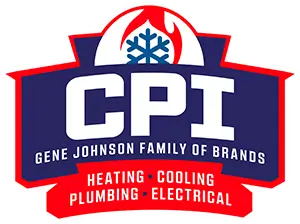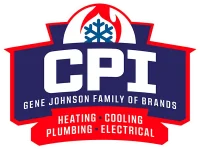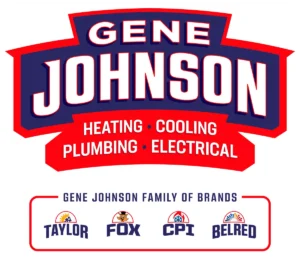The Hidden Costs of Bottled Water vs. Home Filtration Systems
We’ve all been there. Standing in the grocery store aisle, looking at that wall of bottled water and thinking, “It’s just easier to grab a pack.” It feels convenient, pure, and safe. But if you’ve ever found yourself stacking cases of water in the cart every week, you might’ve wondered what it’s really costing you, not just in dollars, but in the bigger picture.
At CPI Plumbing, Heating, Cooling & Electrical, we talk to homeowners all the time about water quality. The truth is, bottled water isn’t the clear solution it seems to be. Between the hidden financial costs, environmental impact, and uncertainty about what’s actually in the bottle, there’s a lot to unpack. Let’s dig into why home water filtration might be the smarter, cleaner, and ultimately more affordable option for your family.
The Real Cost of Convenience
It’s easy to grab a case of bottled water when you’re busy. But over time, those bottles add up fast. The average household in the U.S. spends anywhere from $400 to $1,000 a year on bottled water. That’s money literally going down the drain.
Now compare that with a quality home water filtration system. The upfront cost might seem higher at first, but once it’s installed, you’re only paying for occasional filter replacements. Over the course of a few years, you’ll spend far less for far better water. And it’s not just about your wallet, it’s about peace of mind. You’ll always have access to clean water straight from the tap, without the clutter or the weekly grocery haul.
When we think long-term, convenience doesn’t mean what we think it does. True convenience is turning on the tap and knowing your water is safe, fresh, and ready to drink anytime.
The Environmental Price We Don’t See
Plastic bottles might be recyclable, but the reality is that most of them aren’t recycled at all. In fact, it’s estimated that nearly 80% of plastic water bottles end up in landfills or the ocean. That’s millions of tons of plastic each year, polluting ecosystems, harming wildlife, and sticking around for hundreds of years.
Producing bottled water takes more than just plastic, too. It takes a surprising amount of energy and water just to make the bottle itself. For every one liter of bottled water, it can take up to three liters of water to produce and package it. It’s not exactly an efficient trade-off.
By contrast, a home water filter drastically reduces waste. One reusable bottle and a good filtration system can replace thousands of disposable bottles over time. Small changes like that add up to a massive environmental difference.
Here’s what switching to a filtration system helps reduce:
- Plastic waste that ends up in landfills and oceans
- Carbon emissions from manufacturing and transportation
- Energy use associated with plastic production and recycling
Cleaner planet, cleaner water, it’s a win-win.
What’s Really in That Bottle?
Many people assume bottled water is the purest option available. But here’s a surprising truth: bottled water isn’t always cleaner than tap water. In fact, in many cases, it’s just filtered tap water packaged and sold for profit.
There are limited regulations on bottled water compared to municipal systems, which are required to undergo regular testing and public reporting. That means when you buy bottled water, you don’t always know exactly where it came from or what’s in it.
On the other hand, when you install a water filtration system in your home, you control the quality. You can choose filters designed to remove chlorine, lead, sediment, bacteria, and even unpleasant tastes or odors. You’ll know exactly what’s in your water—and what’s not.
For families in Skagit County, where water can vary depending on the source, having that control brings peace of mind that’s worth every penny.
The Long-Term Health Benefits
It’s easy to forget that water quality directly affects health. Even trace amounts of contaminants like lead, chlorine, or microplastics can accumulate in your system over time. Bottled water isn’t immune from these concerns either, as microplastics have been found in countless bottled brands.
A home water filtration system, especially a whole-house filtration system, can make a noticeable difference. You’re not just improving your drinking water—you’re improving every drop that runs through your home. That means cleaner water for bathing, cooking, washing produce, and even doing laundry.
The health advantages of filtered water include:
- Reduced exposure to harmful contaminants
- Better hydration due to improved taste
- Healthier skin and hair with fewer irritants in your water
Pure water supports your body’s natural functions, helps you feel more energized, and eliminates the uncertainty that comes with store-bought bottles.
Cost Savings That Keep Adding Up
If you break down the numbers, the financial argument for filtration is undeniable. Let’s do a quick comparison.
A typical family of four might buy 1–2 cases of bottled water per week, which adds up to $800 or more annually. Multiply that by five years, and you’ve spent around $4,000 just on bottled water. A high-quality home filtration system, by comparison, often costs less than half of that amount over the same period, including installation and maintenance.
And it’s not just savings on bottled water. A filtration system can also help protect your plumbing and appliances. By reducing minerals and contaminants, your water heater, dishwasher, and pipes experience less buildup, meaning fewer repairs and longer equipment life.
Where you’ll see savings:
- No more bottled water purchases
- Lower plumbing maintenance costs
- Extended lifespan for appliances and fixtures
So when you think of filtration as an investment rather than an expense, the numbers start to make perfect sense.
The Taste Test: Tap vs. Filtered vs. Bottled
If you’ve ever compared bottled water brands, you know they don’t all taste the same. Some have a “flat” flavor, others slightly metallic, and a few even taste oddly sweet. The difference usually comes down to mineral content, plastic packaging, and storage time.
Filtered water, on the other hand, offers consistency. When your filtration system removes chlorine and impurities, you get a fresh, clean taste every time. No plastic aftertaste, no “what’s in this?” guessing game, just crisp, refreshing water straight from your tap.
Homeowners often tell us they start drinking more water once they install a system, simply because it tastes better. That’s a lifestyle upgrade bottled water can’t match.
Installing a Filtration System: Easier Than You Think
Some people hesitate to install a filtration system because they imagine a complicated or costly process. In reality, it’s pretty simple, especially when handled by professionals.
At CPI Plumbing, Heating, Cooling & Electrical, we install a variety of systems, from under-sink filters to full whole-house filtration systems that treat every drop of water entering your home. Our licensed technicians can assess your home’s plumbing, recommend the best setup for your needs, and handle installation quickly and cleanly.
Once it’s installed, maintenance is minimal. Replacing filters is straightforward, and our team can set up routine service visits so you never have to think twice about your water quality again.
Thinking of Adding a Filtration System to Your Home’s Plumbing? CPI Would Like to Hear from You!
If you’re ready to enjoy pure, clean water without the waste or cost of bottled water, our team at CPI Plumbing, Heating, Cooling & Electrical is here to help. We’ve been serving Mt. Vernon, Bellingham, Oak Harbor, and surrounding communities for years, and we take pride in providing reliable plumbing services that make your home healthier and more efficient.
Whether you’re curious about which type of water filter is best or you’re ready to install a full water filtration system, we’d love to walk you through your options. Give us a call today to schedule an appointment or ask for a free estimate. Let’s make bottled water a thing of the past—and get back to enjoying the simple luxury of clean, great-tasting water from your own tap.


